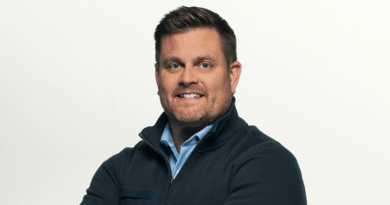The thinker behind circular design says we’re talking about carbon the wrong way: People ‘want to know what to do, what not to do’
The business world, and those that advise it, have largely settled on the buzzwords of corporate sustainability: ESG, net zero and carbon neutral, to name a few. Governments and businesses are focusing on net zero targets in particular, pledging to hit a certain level of carbon emissions by some future date in order to limit global warming to just 1.5 degrees Centigrade.
But William McDonough, the legendary architect that was one of the first proponents of circular design, thinks we’re talking about the issue all wrong—and, worse, it’s putting people off from doing what needs to be done on climate change.
Speaking Tuesday at Fortune’s Global Forum in Abu Dhabi, McDonough characterized the conversation around emissions as an appeal to businesses and consumers to “please be less bad,” and suggested it would not be able to spur change.
“We’re confusing the next generation with our language,” he said. People “want to know what to do, not what not to do,” he continued.
Businesses and executives are suddenly more skeptical of when the shift to renewable energy will happen, following spiking energy prices in the wake of Russia’s invasion of Ukraine last year. Thirty percent of global businesses expect to use fossil fuels into the 2050s, according to a survey from the “We Mean Business Coalition” released in November.
McDonough is often credited as one of the earliest voices on sustainability and is the author of Cradle to Cradle, a book on circular design. Circular design is a design approach that involves creating durable and repairable products that can generate zero waste and would allow for a recovery of resources at the end of a product’s life.
Some of the clients McDonough’s firm has worked with include Bosch, NASA, and Ford Motor. McDonough was listed as one of Fortune’s 50 Great Leaders in 2019 and has called for chief executive officers to be a driving force behind the push towards sustainability.
“The chief executive officer is the real chief sustainability officer, because he has to lead it. It can’t be delegated,” McDonough said in 2019 at Fortune’s Global Sustainability Forum in Yunnan, China.
In 2016, McDonough explained his view behind circular design—and how it relates to carbon—in a commentary piece for the journal Nature. The designer called climate change a “design failure,” and wrote that designers needed to work with the “carbon cycle” to ensure that carbon ends up “in the right place.”
He repeated that assertion on Tuesday, complaining about “carbon is bad” messaging. “Carbon is innocent. It’s beautiful, it’s a source of life,” he said.
Instead of pursuing a negative message, McDonough suggested telling businesses what they could do instead.
“I’m a designer, and I’m optimistic, which means optimism and…this idea of being optimized,” he said.
Fortune’s Brainstorm Design conference is returning on Dec. 6 at the MGM Cotai in Macau, China. Panelists and attendees will debate and discuss “Empathy in the Age of AI” or how new technologies are revolutionizing the creative industry.




